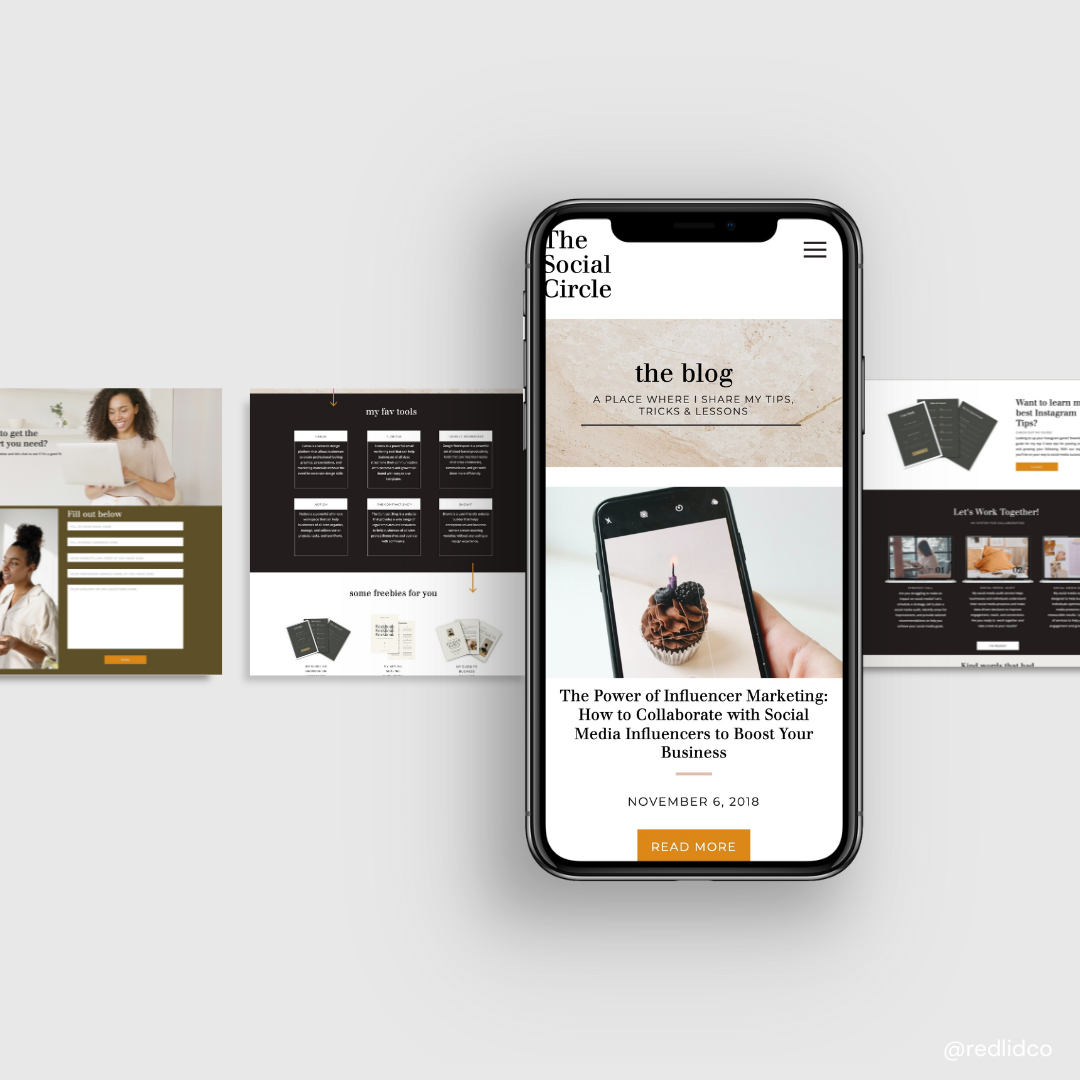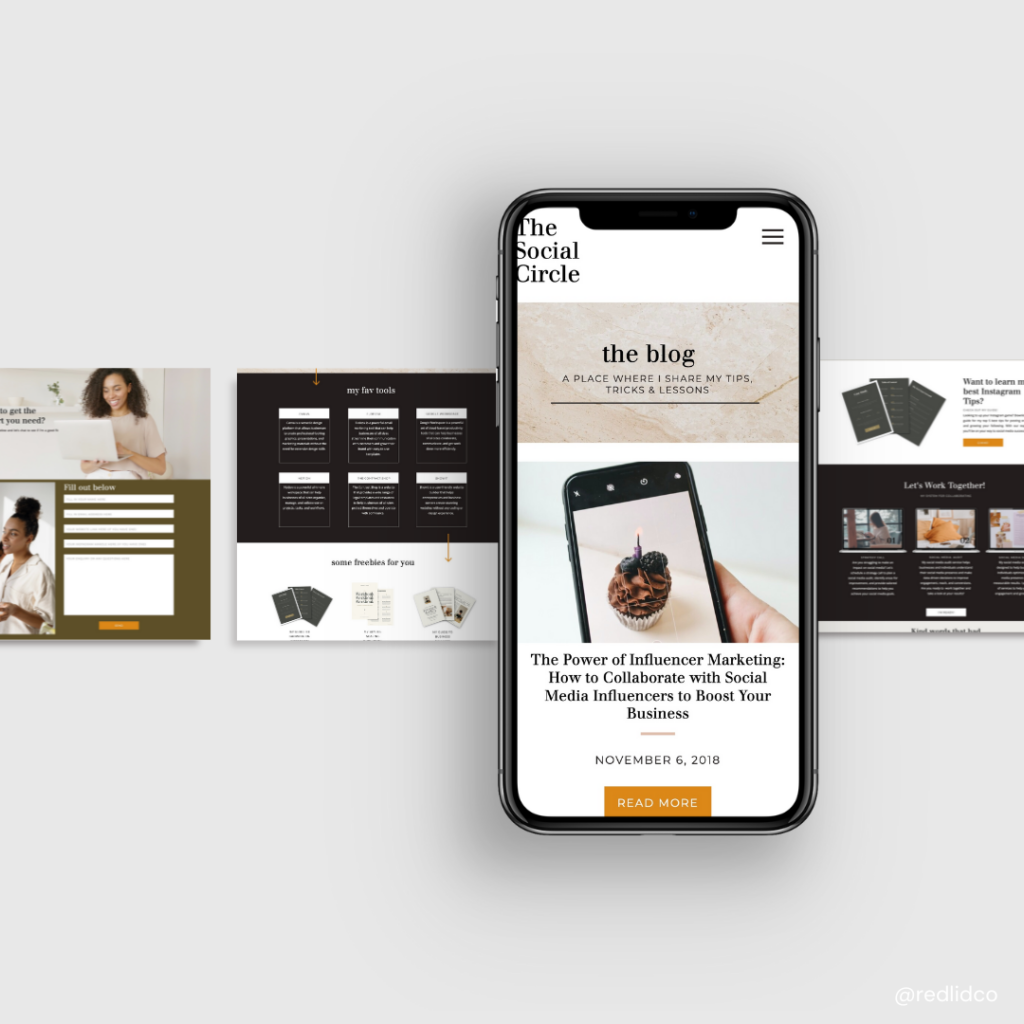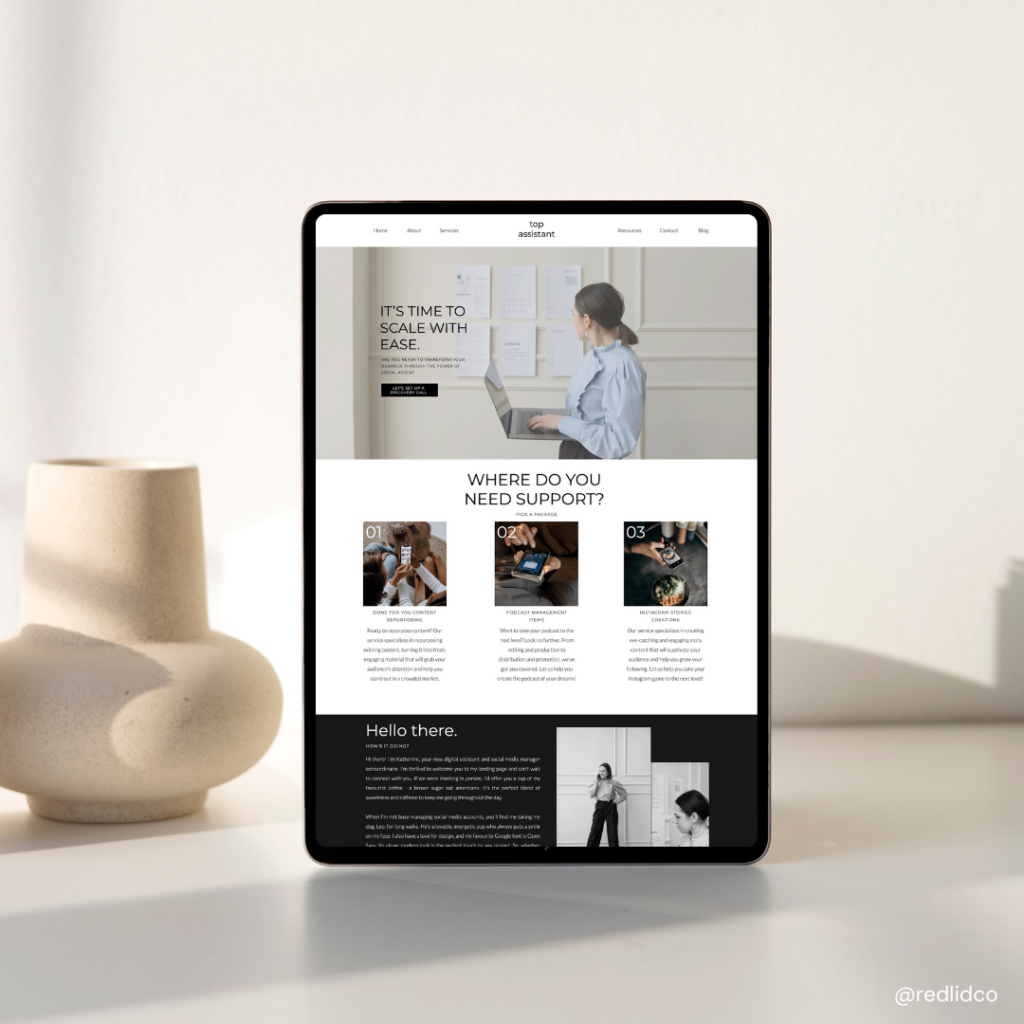The Blog
Web Design vs. DIY Website Builders: Which is Right for Your Business?

In the digital age, having a strong online presence is essential for businesses of all sizes. Your website is often the first point of contact between your company and potential customers, making it a critical element in your marketing and branding strategy. When it comes to creating a website, you have two main options: hiring a professional web designer or using a DIY website builder. Each approach has its pros and cons, and the choice you make can significantly impact your business. In this blog post, we’ll explore the key differences between web design and DIY website builders to help you decide which option is right for your business.

Image is of Red Lid’s Top Assistant website template found here.
The Pros and Cons of Professional Web Design:
Pros:
- Customization: One of the primary advantages of hiring a professional web designer is the level of customization they can offer. Designers can create a unique, tailored website that aligns perfectly with your brand identity and business goals.
- User Experience: Professionals understand the principles of user experience (UX) design, ensuring that your website is user-friendly, easy to navigate, and optimized for conversions. This can lead to higher customer satisfaction and better business results.
- SEO Optimization: Web designers often have a strong grasp of search engine optimization (SEO) techniques, helping your site rank higher in search engine results and driving organic traffic to your business.
- Responsive Design: A professional web designer can ensure that your website is responsive and functions seamlessly on various devices, from desktops to smartphones, which is crucial in today’s mobile-centric world.
- Technical Expertise: Designers are well-versed in coding and can handle complex technical aspects, such as database integration, e-commerce functionality, and content management systems (CMS).
Cons:
- Cost: Professional web design can be expensive, particularly for businesses with limited budgets. Custom designs often come with a higher upfront investment.
- Time: Developing a custom website from scratch may take longer than using a website builder, as it involves various stages of design and development.
- Maintenance: Ongoing maintenance and updates may require additional costs if you rely on a professional designer.
The Pros and Cons of DIY Website Builders:
Pros:
- Affordability: DIY website builders are typically more budget-friendly, making them an attractive option for startups and small businesses.
- Ease of Use: These platforms are designed for users with little to no coding experience, making it relatively simple to create and manage a basic website.
- Templates: Most DIY builders offer a range of templates and pre-designed layouts, saving you time and effort in the design process.
- Speed: You can have a website up and running quickly, often in a matter of hours.
Cons:
- Limited Customization: DIY builders have limitations when it comes to customization. Your website may look similar to many others using the same platform, which can make it harder to stand out.
- Limited Features: Advanced features, such as e-commerce functionality or complex forms, may not be readily available or require additional fees.
- SEO and Performance: Achieving high search engine rankings and optimal website performance can be more challenging with DIY builders, as they may not offer as much control over these aspects.
- Scalability: As your business grows, you may outgrow the capabilities of a DIY website builder, necessitating a transition to a custom-designed site.

Image is of Red Lid’s Top Assistant website template found here.
Which Option is Right for Your Business?
The decision between professional web design and a DIY website builder ultimately depends on your specific business needs, budget, and goals:
- Choose Professional Web Design If:
- You have a larger budget to invest in a unique and highly customized website.
- You require advanced functionality or specific features.
- You value a strong online presence and are willing to invest in long-term success.
- Choose DIY Website Builders If:
- You have a limited budget and need a basic website quickly.
- Your website needs are relatively straightforward.
- You’re comfortable with a less customized design.
In many cases, a hybrid approach is also possible. You can start with a DIY builder to establish your online presence quickly and then consider transitioning to a professionally designed website as your business grows and your needs evolve.
In conclusion, the choice between web design and DIY website builders is not one-size-fits-all. Assess your business requirements, budget constraints, and long-term goals carefully before making a decision. Regardless of your choice, remember that your website is a vital asset, and investing in its quality can have a significant impact on your business’s success in the digital landscape.
By Alice Bowyer | October 5th, 2023
Comments will load here
Be the first to comment